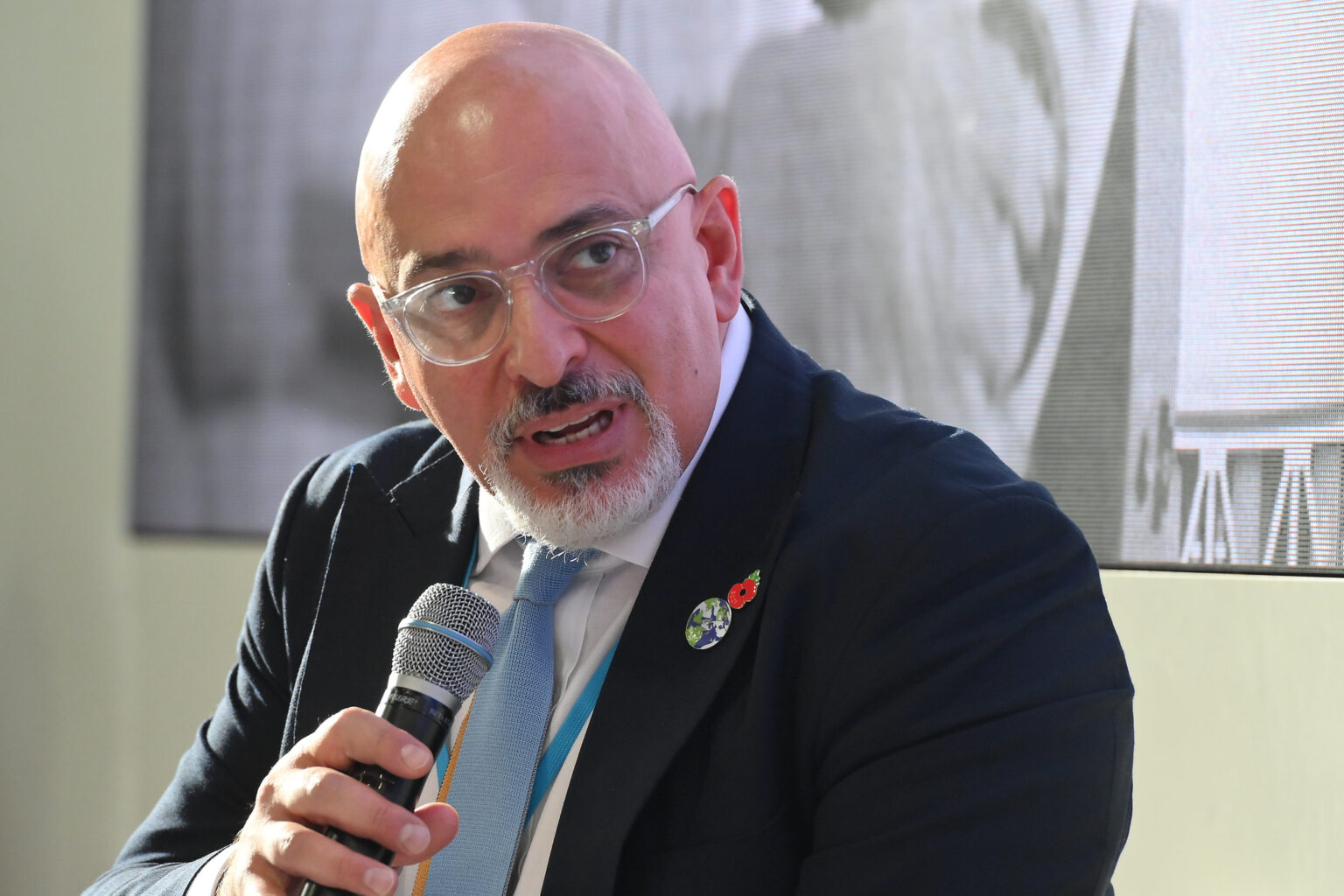DUBAI — Conservative MP Nadhim Zahawi is attending the COP28 climate summit as a guest of the United Arab Emirates, DeSmog can reveal – prompting questions about his role as the intermediary in the host country’s prospective takeover of a major British newspaper.
An investment fund backed by the UAE has reached an agreement to buy The Telegraph and its sister publication the Spectator and erase the £1.16 billion debt of the Barclay brothers, their current owners.
A list of COP28 participants released by the UN shows that Zahawi is the only Conservative parliamentarian to have been given access to the conference by the UAE. The records show former UK prime minister Boris Johnson was also granted a pass by the Gulf state.
Zahawi, whose badge allows him access to the summit’s official ‘Blue Zone’, was spotted at Thursday night’s royal reception in Dubai, featuring Sheikh Mohamed bin Zayed Al Nahyan, President of the UAE, and King Charles. Only UN-accredited individuals – world leaders, country representatives, media and NGOs – are permitted in the area.
The access raises further questions about the closeness between Zahawi and the UAE, a fossil fuel state, how his role may facilitate the sale of the newspaper, and whether he will be involved in the running of the paper if the purchase is completed.
The UAE-backed fund is a joint venture between U.S.-based RedBird Capital and International Media Investments (IMI) of Abu Dhabi. As revealed by DeSmog, RedBird Capital has extensive fossil fuel investments, holding a stake in at least six fossil fuel firms. This includes Aethon United, listed by Enverus Intelligence Research as one of the most prolific private oil and gas producers in the U.S. in 2023.
News reports suggest that the deal is being backed by Sheikh Mansour bin Zayed Al Nahyan, who serves as the deputy prime minister of the UAE, the head of its state-owned investment company, and the owner of Manchester City football club.
Zahawi has admitted that he introduced IMI to the Barclay brothers, and it has been suggested that the former chancellor of the exchequer could be installed as the chairman of the Telegraph Media Group if the deal goes through.
The UAE is a major producer of oil and gas and has the world’s largest oil expansion plans. The state-owned energy company, the Abu Dhabi National Oil Company (Adnoc), intends to increase its oil production by more than any other fossil fuel firm in the world, according to data from the Global Oil and Gas Exit List (Gogel). Adnoc said that Gogel’s data and assumptions were “incorrect and misleading” but has not provided its own figures.
Zahawi himself also has a long history of working for oil and gas companies. The MP for Stratford-on-Avon has earned £1.3 million from a Kurdish oil company while serving as an MP, and has advised fossil fuel companies operating in Nigeria and Canada.
This year’s COP28 summit is being held from 30 November to 12 December in Dubai, welcoming a record 90,000 delegates from member states, pressure groups, and the media.
Transparency Concerns
The UK government has in recent days referred the Telegraph deal to regulators, faced with concerns over potential foreign interference in the newspaper.
There have also been concerns about the fact that Zahawi has not declared his role in the deal with the relevant political authorities.
Parliamentary rules require former ministers to seek the advice of the advisory committee on business appointments (ACOBA), a Whitehall watchdog, before taking on paid or unpaid roles.
In this case, Zahawi claims that he does not need to do so.
“I have no role with Jeff Zucker [the head of IMI], the Telegraph or the Barclays. If that changes, I will seek advice on any role I could have and then Acoba will publish in the usual way, should I accept a role,” Zahawi has said.
Tom Brake, director of UnlockDemocracy, said it was “the safest and most transparent step” for Zahawi to refer the matter to ACOBA, which “can then decide the rights or wrongs of the case”.
“The ACOBA rules are very clear on one matter,” he told DeSmog, “and that is any lobbying of the UK government over the future of the Telegraph would be inappropriate.”
If the Telegraph deal is blocked by regulators, other interested parties may take advantage. Paul Marshall, the co-owner of GB News, is also reportedly interested in buying the titles. DeSmog revealed in October that Marshall’s hedge fund has $2 billion in fossil fuel investments.
COP28 & Delegates
The summit has so far seen agreements reached on the tripling of renewable energy capacity, the phasing out of coal plants, and the launch of a ‘loss and damage’ fund to compensate countries in the Global South for the impacts of climate change. However, an agreement on the future of fossil fuels, and whether countries will either agree to “phase down” or “phase out” oil and gas, has yet to be reached.
Prime Minister Rishi Sunak used his speech at the summit on Friday to tout his recent watering down of climate action. Sunak said that he wanted to implement climate policies in a way that “benefits the British people”, adding that “we have scrapped plans on heat pumps and energy efficiency that would have cost people thousands of pounds”.
Despite this, he also said that “the mounting science and evidence of climate related disasters prove we are not moving fast enough”.”
A Financial Times analysis of the participants invited to the summit by the UAE shows how the host has handed out passes to oil executives, bankers, consultants and lobbyists. The UAE has invited more than 9,000 people to the Blue Zone.
The COP28 president, Sultan Al Jaber, said on Sunday that there is “no science” indicating that a phase-out of fossil fuels is required to limit global heating to 1.5C – an internationally binding target that was agreed at COP21 in Paris in 2015. He added that fossil fuels should not be phased out “unless you want to take the world back into caves”.
The International Energy Agency has stated that new oil and gas projects are incompatible with the 1.5C target.
A DeSmog analysis found that eight in 10 opinion pieces from The Telegraph on environmental issues downplay the climate crisis. Our analysis, for the six months ending 16 October, found that of the 171 articles covering environmental issues, 85 percent were identified as “anti-green” – attacking climate policy, downplaying climate science and ridiculing environmental groups.
The Telegraph’s print circulation at the end of 2019, when it last released the data, was over 300,000. It had an online audience of 13.5 million in September this year. A poll conducted in August found that Conservative MPs consider The Telegraph their second most trusted newspaper.
DeSmog has approached Zahawi for comment.
Subscribe to our newsletter
Stay up to date with DeSmog news and alerts






